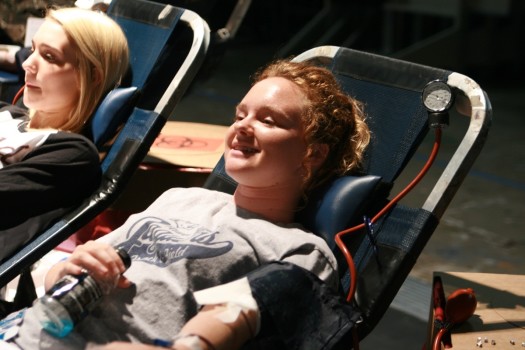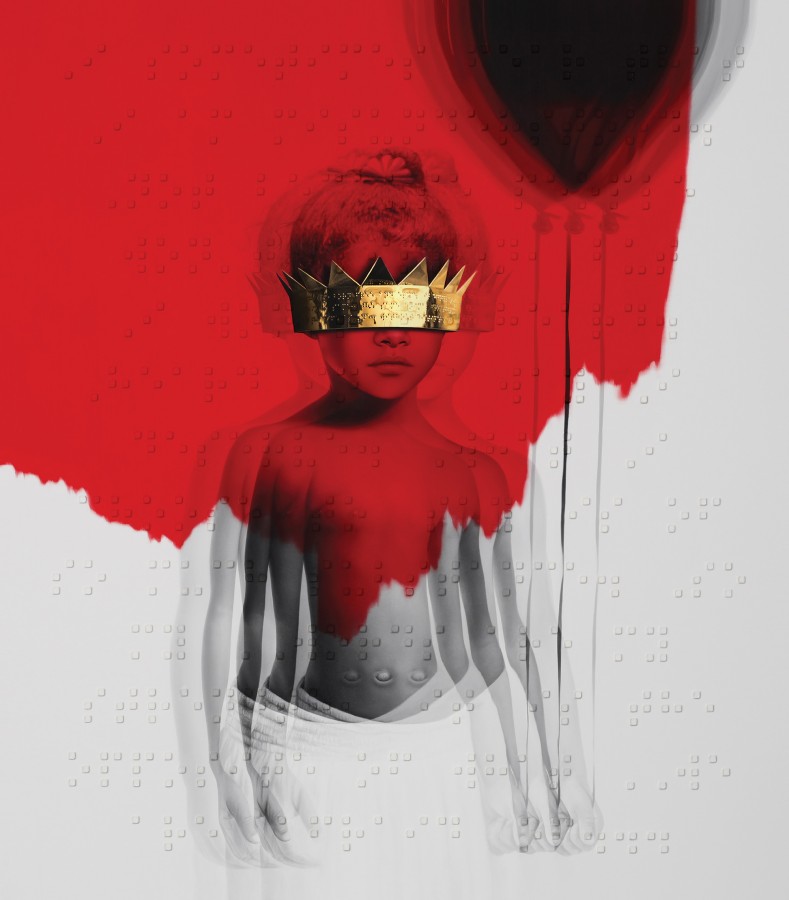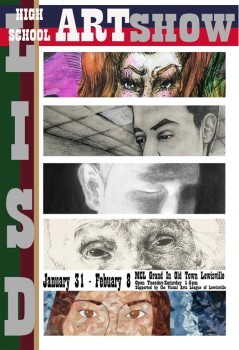There are several ways to make a difference in the community. For some, that difference could include donating time or money to help those less fortunate. For several hundred FMHS students, that difference means donating blood.
On Wednesday, April 10, FMHS opened its doors once more for Carter BloodCare and hosted the second of its biannual blood drives. The drive, which took place in the school’s auditorium, lasted from 8:00 AM to 3:00 PM. During this time, over 180 Flower Mound were pulled from their classes to voluntarily donate blood.
This blood drive, as with those in the past, was sponsored by the FMHS Student Council. StuCo has a history of running the drives smoothly and efficiently, and is responsible for coordinating with Carter to organize them, from writing student passes to arranging time slots, location, and date.
“I participated because it’s a great way for me to get involved and give back to the community,” senior Divya Narayanan said.
Divya was just one of the countless FMHS students to undergo the blood-giving process. Even without the prospect of an honor cord, the distribution of which cancelled this year, a remarkable number of students participated, resulting in over 200 pints in donation—20 times more blood than contained in the average human body.
“The process is simple,” student council sponsor and FMHS psychology teacher Jennifer Owens said. “First, a student fills out their demographics. After that, they read a document that highlights what might disqualify them from donating. Then Carter checks their iron levels, we give them a quick snack, and they go to the back of the auditorium to have their blood drawn.”
Not just anyone can donate, however. Several requirements must be met before one can safely donate blood. At FMHS, students must be at least 17 years of age and have a written consent form from a legal guardian. In addition, students could not weigh less than 110 lbs.
“There are a few things that can prevent someone from donating,” said Ricky Wingham, who has worked at Carter BloodCare as a mobile supervisor for 6 years. “On top of age and weight requirements, we have to ensure that the blood is pure, so you can’t have any medication in your system, a history of drug use, or any other complications that could be transmitted through the bloodstream.”
Even if students did not meet the requirements for donation, they could still find other ways to become involved in the blood drive process. Students like student council’s Nive Manohar gave their time instead, volunteering at rest stations and other stages in the blood-giving process.
“Giving a pint of blood can take a lot out of a person,” junior class vice president Nive Manohar said. “I worked at one of the snack stations, making sure that post-donors were healthy and had time to replenish their energy.”
According to statistics, one pint of blood donated has the potential to save three lives. If this is the case, then thanks to the hard work of the student council, Carter BloodCare, volunteers, and all of the selfless donors that participated, FMHS alone has saved approximately 600 lives. Have you done your part?





